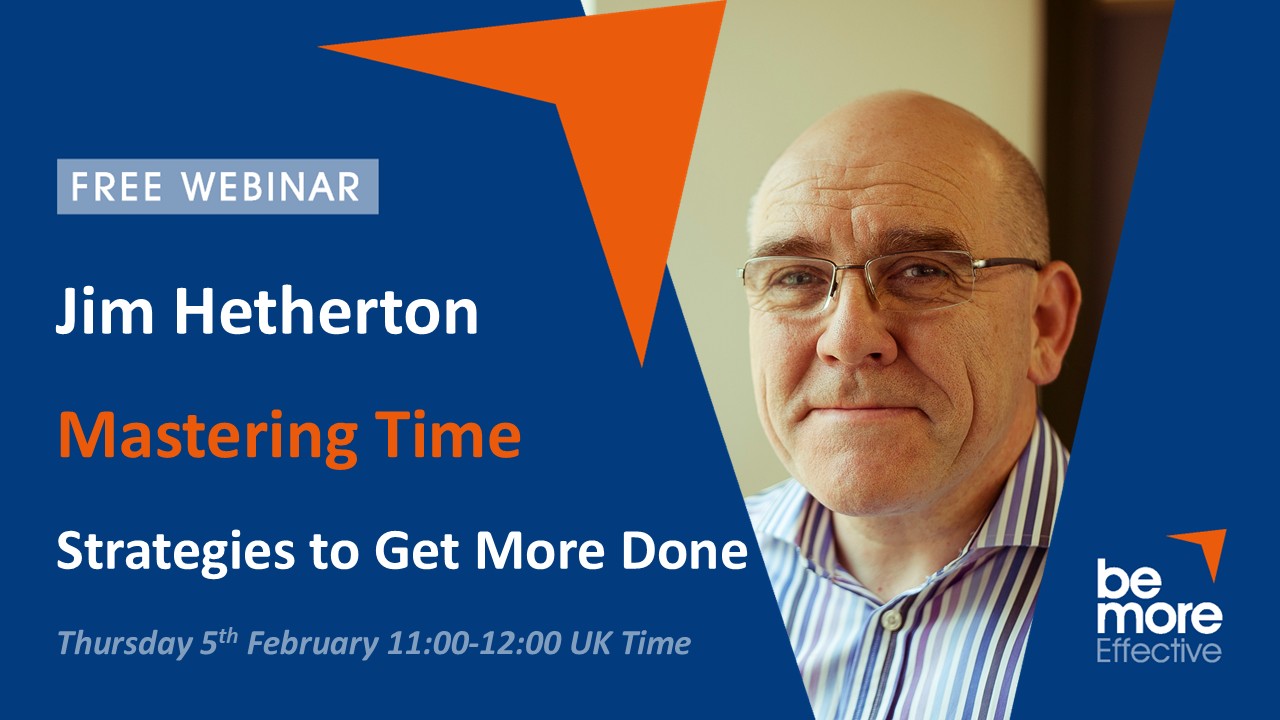5 Questions A Leader Should Ask about Time

Think Time
Let’s look at your schedule.
How much time to you set aside each week to think?
One of the most important things you can do with your time is to think, to ponder, to reflect. You need to think about what is happening, and what should be happening. You need to think about the weaknesses that your organisation has, and how to strengthen them. You need to think about what talent you and the people where you work have, and what you’ll need in the future.
And thinking is much more than just considering where you’d like to go. It includes contemplation.
You could ask questions such as, “Why are things as they are?”, except that instead of calling them “things” you use specific, descriptive nouns that apply to your particular situation.
You could ask, “What if . . .?”
We take this for granted now, but when spreadsheets first came out this was their big strength. You could enter some hypothetical numbers if a few boxes, and the predetermined formulas will “crunch the numbers” and tell you what the result would be.
You need to do the same thing. You need to ask, “What if . . .?”
- “What if we made this investment?”
- “What if we go into this market?”
- “What if we hire this person?”
- And you need to ask the opposite questions, too.
- “What if we focus on the market we’re in?”
- “What if we don’t expand our capacity?”
- “What if we don’t hire more people?”
Military planners do this.
They think about the advantages and limitations of a particular battle, all the while hoping that they never have to implement their plan. They also take the position of the enemy and try to understand what he will do. Then they create other plans to counteract his plans. So you not only spend time thinking about what isn’t working, but more especially on what is.
The opposite of thinking is running.
If all you’re doing is running from one meeting to the next, then you must set aside time to gain perspective, because without it you’ll only become more and more entrenched in your day-to-day routine.
Reading Time
Look at your schedule again. How much time do you set aside each week to read?
Leaders are readers. Maybe you’ve heard that.
What you perhaps haven’t realised is that there is so much management research published every day that you need to make time to tap into some of it. Otherwise, you may be following an outdated fad. (Actually all fads are outdated, even when they’re popular.)
One of the biggest problems that exists today in the academic and business communities is what is known as the research-practitioner gap. Lots of research is being done, but the results are not finding their way into organisations.
Part of the reason for this is that the rigour that is necessary to satisfy academic peers puts the material out of reach for people who aren’t well-versed in research methodology and advanced statistics.
That said, a bigger problem is that leaders and managers don’t take the time to find out what research has been done.
You can help to bridge that by reading books and articles, and not just HBR. Some people seem to think that if they subscribe to the Harvard Business Review, then they’ll stay current.
This is a wake-up call for you if you’re among them. There are thousands of leadership and management journals, and HBR is only one.
It could be that your alma mater will give you online access to their management database.
Use Google Scholar to look up the topics that interest you. Then use the database to read them.
Volunteering time
Dan Pink asks, “If our company went out of business tomorrow, would anyone who doesn’t get a paycheck here care?”
Let’s ask that a little differently. Yes/No questions aren’t very valuable.
Here’s a better way to ask it: “What value does your organisation give to your community that extends beyond the jobs that it provides?”
If the answer is “none”, then think about what you could do to change that. You should be doing more than paying your rates and utility bills, and employing some people. You should be making the community within which your business exists a better place for all who live there, whether they work for you or not.
How could you do that?
You could start by giving your employees a certain number of days each year of paid leave that is for the expressed purpose of volunteering for a worthy cause in their neighbourhood.
Organisations such as Nationwide Building Society, Accenture, Ricoh UK, and Sage already do this. Some provide two days per year; others three. You need to decide what works for you and your community.
Personal development time
Your employees will be more motivated if you’re helping them to reach their personal goals than if they will be if you don’t.
And if you think about it, you’ll probably discover ways in which their goals align with your organisational goals.
The United States Air Force (USAF), for example, values education. It wants its airman (men & women) to obtain higher education. You probably are aware, however, the tuition is very expensive in America.
In years gone by, the USAF has subsidised the cost of tuition fees for those airman of a certain minimum rank, one that can be achieved by those who reenlist and, in so doing, demonstrate that they intend to stay in for years to come.
There was a time when organisations created PDPs, or Personal Development Plans. The operative word is personal. It’s all about them. And with the flattening hierarchies and no job-for-life, most people have found themselves in a situation where they have had to create and implement their own plans. Suppose that you made time available to them for creating these plans, and that you evaluated their personal goals in the context of those of your organisation.
Do you think that there might be some common ground?
You’ll never know unless you ask the question. And while we’re on the subject, what are your personal goals?
It could be that you live for your work. That’s a bad choice. People who don’t develop any outside interests struggle to retire. Retirement doesn’t mean that you do nothing. It simply means that you do something else.
But if your normal routine is to work 12 hours per day six or seven days per week, and then collapse on the sofa when you get home or fall asleep in your recliner and then drag yourself off to bed at two in the morning, then you need to change your habits.
You see, when those who live for their work are unable to do it, they tend to die more quickly when it’s taken from them. And there are a lot of ways that this could happen besides redundancy or the closure of your organisation. You could become physically debilitated. It doesn’t take much. It depends on the industry, and what you do.
The Federal Aviation Administration (FAA), for example, mandates that all commercial pilots retire at age 65. It doesn’t matter how fit those people are. On their 65th birthday, they stop flying airliners.
Let’s take an extreme example.
The average footballer has eight seasons and retires by age 35. Then what?
The savvy athlete will use some of his earnings to provide a second career when the first one ends. So spend some time thinking about your goals and, if you don’t have any, then get some advice from those who can help you with these things.
Rest and recovery time
You need to ask yourself how you rest and recover.
For some, work is play, and play is work. That’s a recipe for a breakdown. You may feel absolutely fine. Thing is that breakdowns can occur suddenly. One minute you feel okay, and the next you can’t stop crying.
It happens.
So go back to your schedule again and ask yourself how much “clear” time you take off work each week.
“Clear” time means nothing that is work-related: No email, no texts, no phone calls, no paperwork. Nothing that you would do in your job, whether you’re the owner or an employee.
And be honest. You can’t make an accurate assessment if you fudge your answers. You also want to ask yourself when you last took a proper holiday. This one catches a lot of solopreneurs and small business owners off-guard. Many pride themselves in the fact that they haven’t had a holiday in five years or longer.
There’s a reason why full-time employees are guarantee 28 days a year, pro-rated for part-timers. It’s that you need prolonged periods of recovery.
If you rely on long weekends, then you never really get the job out of your system. If you go away for a week with a weekend at each end, then you stand a much better chance. Your family will appreciate it, too. You need to recharge your batteries before they’re flat, and you won’t do that over a Bank Holiday weekend, especially with the British weather being what it is. If you haven’t had a proper break, then ask yourself when the earliest time is when you could. You’re long overdue.
And remember that you’re not indispensable or indestructible.
Even solopreneurs need time off.
Some professional associations, such as the Institute of Consulting insist that you have people in your network with whom you can delegate work should you become ill. After you’ve had a proper break, then immediately ask yourself when you can take time off again. You should be able to do this three or four times per year.
You just have to plan to do it.
You plan for sleep. You plan to take a day off every week, and you plan - come what may - to take longer holidays throughout the year.
Conclusion
The questions in this article have been about time - how you invest it rather than spend it.
Remember that you have to set aside time for all of these things, and not just you; but also your employees. Time to think, to read, to volunteer, to pursue personal goals, and to rest and recover.
These five questions, properly answered, will make you more efficient and effective.
If you need to work on how you invest your time – email here
For more information please send a message via the Contact Us Page. Or you can register for an upcoming webinar.


